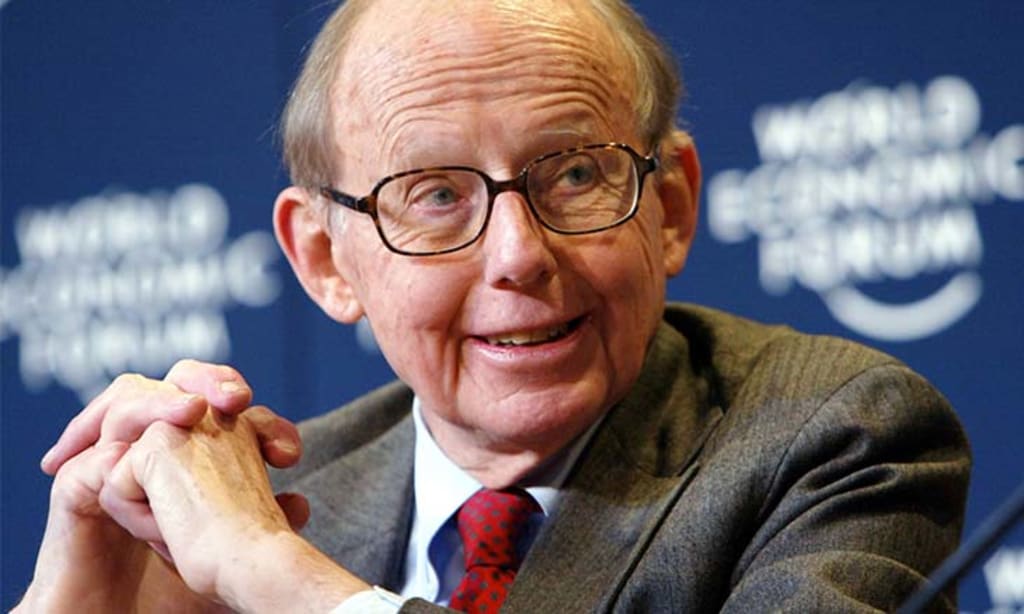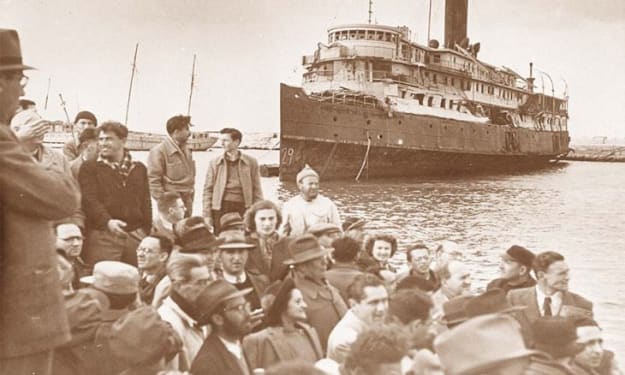A clash in the imagined "Orthodox civilization".
Attention - when the "clash of civilizations" of Samuel Huntington became famous in the nineties of the last century - overshadowed the refutation of what is related to the clash between Western and Islamic civilizations

Attention - when the "clash of civilizations" of Samuel Huntington became famous in the nineties of the last century - overshadowed the refutation of what is related to the clash between Western and Islamic civilizations, at the expense of Huntington's unusual view of what he singled out under the title "Orthodox Civilization". And the scope of its conflicts with other civilizations.
Huntington's "Clash of Civilizations", as well as "The End of History and the Last Man" by Francis Fukuyama, are among the books whose titles are shortened. The idea contained in the title was answered in a way that suggests that it is only direct, without being read. Rather, I combined the response to Huntington with the response to Fukuyama as if they were promoting the same propositions, while they were striving to see the world of the Cold War from two completely different perspectives, one optimistic / Fukuyama and the other pessimistic / Huntington.
Did the clash of civilizations finally occur, or did we proceed from a Western-Islamic civilized clash to another Western-Orthodox, or did the current war, from Kharkov to Kyiv to the port of Odessa, contradict that completely, to highlight rather the character of the war as a Slavic-Slavic civil war, and an Orthodox-Orthodox?! Or are all dimensions of identity but useless decorations when looking at the course of the crisis in its immediate military scope, and on a global level?
Today, while the entire planet is following the Russian invasion war on Ukraine, the second republic of the former Soviet Union in number and area, full of natural wealth and bounties, and the largest country in terms of area, all of it is on the European map, and when two Eastern Slavic Christian Orthodox republics, Russia and Belarus cooperate to dismantle a third, the question becomes about Huntington's meaning of orthodox civilization is one of the possible paths to trying to comprehend what is happening.
Huntington's book is basically a book on political geography, but it contradicts the classics of craftsmanship, as it appeared in the British Halford Mackinder at the beginning of the twentieth century.
For Mackinder, our world is divided between a large island, that includes Asia, Europe and Africa, and between islands near and far from this great island, the "island of the world." Whoever controls the interior of this main island of the world, that is, over the Eurasian interior steppe region extending from Ukraine to Siberia, can dominate the island-the whole world, and he who controls the island-this great continent will dominate the rest of the world, both with his islands near the island of the world ( The case of Britain and Japan) or far (America and Oceania). Mackinder's view of this is basically a response to his reassuring followers that as modernity advances and the distances shorten with the development of fleets from trade and war, the naval powers (Britain and the United States) will gain their grip on the world. Mackinder disagreed with this view, and considered that railways that shorten distances in the continental regions of the world have more important repercussions than shortening maritime distances due to his linking the domination of the world to the control of the land mass that is more closed relative to the sea world. Mackinder is the first theoretical inspiration for the idea that Russia's limitation in Ukraine will strip it of its monopoly on the heartland of the island world, the Heartland. Just as what happened under Vladimir Putin in Russia, Mackinder was adopted backwards. In the sense of considering the restoration of Russian influence in Ukraine in any way that will make Russia actually control the Heartland, which Mackinder warned against, making it invincible and even dominant in every direction. Just as what happened under Vladimir Putin in Russia, Mackinder was adopted backwards. In the sense of considering the restoration of Russian influence in Ukraine in any way that will make Russia actually control the Heartland, which Mackinder warned against, making it invincible and even dominant in every direction. Just as what happened under Vladimir Putin in Russia, Mackinder was adopted backwards. In the sense of considering the restoration of Russian influence in Ukraine in any way that will make Russia actually control the Heartland, which Mackinder warned against, making it invincible and even dominant in every direction.
Thus, what Putin sees today is that the world is desperate not to expand the Atlantic to the east, but rather so that Russia does not complete its control over the entire Hartland, the geopolitical region extending from Siberia to the steppes of Central Asia and Ukraine, and that this desperation means that Russia must indeed seek this control no matter what. It cost. In fact, after the Russians rejected the ideology in their politics, they went to quote from the headlines of Western geopolitics, and then adopted it upside down as their alternative ideology.
As for Huntington at the end of the last century, unlike Mackinder, the world cannot be divided into a group of colliding geographic blocks solely on the basis of the dichotomy of sea and land, the main island and its surroundings and its remote islands, and between the interior of this main island and its fins of peninsulas and semi-continents that surrounds the Eurasian heart, far from the main areas of maritime navigation. His geography is separated according to civilizations, and most of these civilizations define their domain and who belongs to one of them according to the religious criterion. Accordingly, Huntington considered that the Islamic world in most of it constitutes one civilization. But he did not say one Christian civilization. Rather, the West brought its Catholics and Protestants together in a civilization that separated it from the civilization of Latin America, Catholicism rather than a mulatto. At the same time, Huntington did not accept the idea that the West was expanding its geographical scope. Therefore, he considered that Japan could not count to the west, unlike New Zealand, despite its geographical distance. And more, despite Greece’s membership in the Atlantic and in the European construction, and despite the West’s interest since the Renaissance in attributing its intellectual and cultural sources to the ancient Greeks, Huntington stressed that Greece, Bulgaria, Serbia, or any people with an Orthodox majority cannot be counted as Western, because Westernization is not all modernity. at Huntington. Each civilization has its own modes of modernization, which, although inspired by elements of the modernity of the West, will mix and hybridize them with elements of its own environment.
Thus, for Huntington, the explosion of Yugoslavia was a corollary of the fact that Serbia could not become a West, and that Croatia and Slovenia, on the contrary, were part of the West. Poland can count in the West, also because it is Catholic, as well as the three Baltic countries, vacillating between Catholicism (Lithuania) and more Lutheran heritage (Latvia and Estonia), but neither Romania nor Ukraine can. Orthodox Christianity has something other than the West, and in the post-Cold War era Huntington expected that the Orthodox bond would become closer and clearer between these countries.
This assumption in the 1990s was influenced by the Serbo-Croatian clash over the ruins of the Yugoslav idea, which also emerged from only the unity of the Slavs in general. However, in the post-Cold War era, neither the Slavic League as an idea has been revived, nor does the all-Orthodox agglomeration in the way that Huntington is venturing into. The scene currently seems to refute the idea that there is one Orthodox civilization that can be viewed as a geopolitical and geocultural given clashing with other civilizations, and governed by fraternity between the Orthodox Slavic Christians. Unless the conceptual model adopted by Huntington can accommodate the wars of "unifying the guns" among the Orthodox. But such unification does not take place in a world parallel to the conflict between Russia and the West, but rather takes place on the Ukrainian land, and against the majority of Ukrainians, on the accusation that they, as Ukrainians, have forgotten or are arrogant about being Russians.
Huntington imagined an orthodox civilization, and alienated its countries from the concept of the West, because for him it cannot be an Orthodox and Western cultural heritage at the same time. But the Orthodox countries were, in fact, divided between those who are members or want to be members of the European Union and the Atlantic, and between Russia and Belarus. The clash that Huntington expected in the frontier regions between the Orthodox and others took place in its fiercest form in the heart of the Orthodox Christian. That this clash could unite this civilization by force in order to confront other civilizations, only this could rehabilitate Huntington's perception here. But this is precisely the Russian delusion in all this catastrophe. What Huntington predicted is an orthodox civilization regaining its hold after the demise of the Soviet Union, as opposed to the West. Rather, this imagined civilization appeared as a vital field for an Orthodox civil war between the Orthodox of Eurasia... and the Orthodox of the West.





Comments
There are no comments for this story
Be the first to respond and start the conversation.